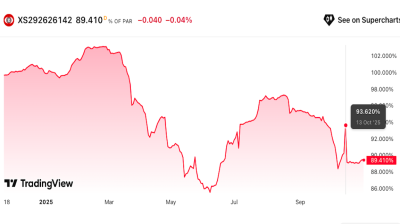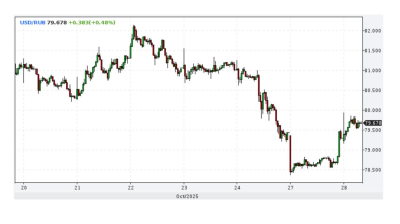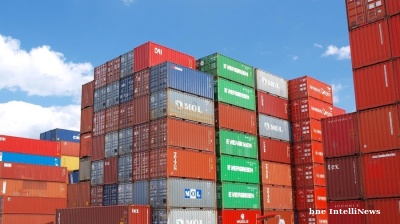Russia’s IHS Markit Russia Services Business Activity Index fell slightly in February but composite index remains in the black
.png)
Russia’s IHS Markit Russia Services Business Activity Index fell slightly in February to 52.0 from 54.1 at the start of the year, but remains in the black ahead of the 50 no-change mark.
Services remain part of the Russian economy that has been consistently growing in the last few years as an increasingly large part of the economy goes online and, since December 2019, real incomes have started to grow again.
The positive services PMI result offsets the manufacturing PMI which came out last week and also showed an improvement, with the index rising from 47.9 at the start of 2020, to 48.2 in February, but that is still a contraction, as it remains below the 50 no-change mark, IHS Markit reported on March 2.
Taken together the positive result for services and the improved result for manufacturing combined to keep the composite PMI index just in the black: the composite PMI posted 50.9 in February, which was a small fall from 52.6 it posted at the start of this year.
“The rate of growth [of the composite index] signalled was the slowest since July 2019 amid less robust demand conditions. At the same time, new order growth softened midway through the first quarter as foreign client demand fell for the tenth consecutive month. Although modest, the rate of expansion of overall new business was the slowest since last November,” Markit said in a note.
The Markit indices are based on interviews with business managers and these results were gathered before the full force of the coronavirus impact were felt on the Russian economy in the last week of February. Next month’s results are very likely to be much worse.
And the dark clouds were already gathering before the pandemic got going.
“Russian service sector firms registered a slower rise in business activity in February amid softer growth in domestic demand. Although new export orders rose at a faster pace, total sales showed the weakest expansion for five months,” Markit said. “As a result, firms increased workforce numbers at only a fractional rate as backlogs of work contracted further. Although service providers registered a slightly stronger degree of optimism, confidence remained well below the long-run series average.”
While the business environment was soggy that also meant that pressure on prices was depressed. Output charges fell for the second month running in services as muted input prices rises and greater competition weighed on pricing decisions, Markit reported.
New business growth was supported by a faster expansion in foreign client demand midway through the first quarter of the year. Although the upturn in total sales also softened to a five-month low, new export orders rose at the sharpest rate since last October.
Despite the poorer results the managers of services remain modestly upbeat about the rest of the year. Russian service sector firms recorded a greater degree of confidence in a rise in output over the coming 12 months in February.
“Positive sentiment was attributed to larger client bases, greater marketing activity and investment in new service lines. Although the level of optimism strengthened from January, when it recorded a three-year low, it remained below the series trend and was historically muted,” Markit said.
Taking manufacturing and services together Markit says that some of the marginal growth in the composite index was driven by a solid contraction in workforce numbers across the manufacturing sector. The fall coincided with a further reduction in strain on capacity, as shown by a drop in backlogs.
Data

Eurobonds of Istanbul-listed Zorlu units offer attractive yields amid rating downgrades and no default expectation
Debut paper currently offering 14-15% yield.

Ruble strengthens as sanctioned oil companies repatriate cash
The Russian ruble strengthened after the Trump administration imposed oil sanctions on Russia’s leading oil companies, extending a rally that began after the Biden administration imposed oil sanctions on Russia in January.

Russia's central bank cuts rates by 50bp to 16.5%
The Central Bank of Russia (CBR) cut rates by 50bp on October 24 to 16.5% in an effort to boost flagging growth despite fears of a revival of inflationary pressure due to an upcoming two percentage point hike in the planned VAT rates.

Ukraine's trade deficit doubles to $42bn putting new pressure on an already strained economy
Ukraine’s trade deficit has doubled to $42bn as exports fall and imports balloon. The balance of payments deficit is starting to turn into a serious problem that could undermine the country’s macroeconomic stability.



